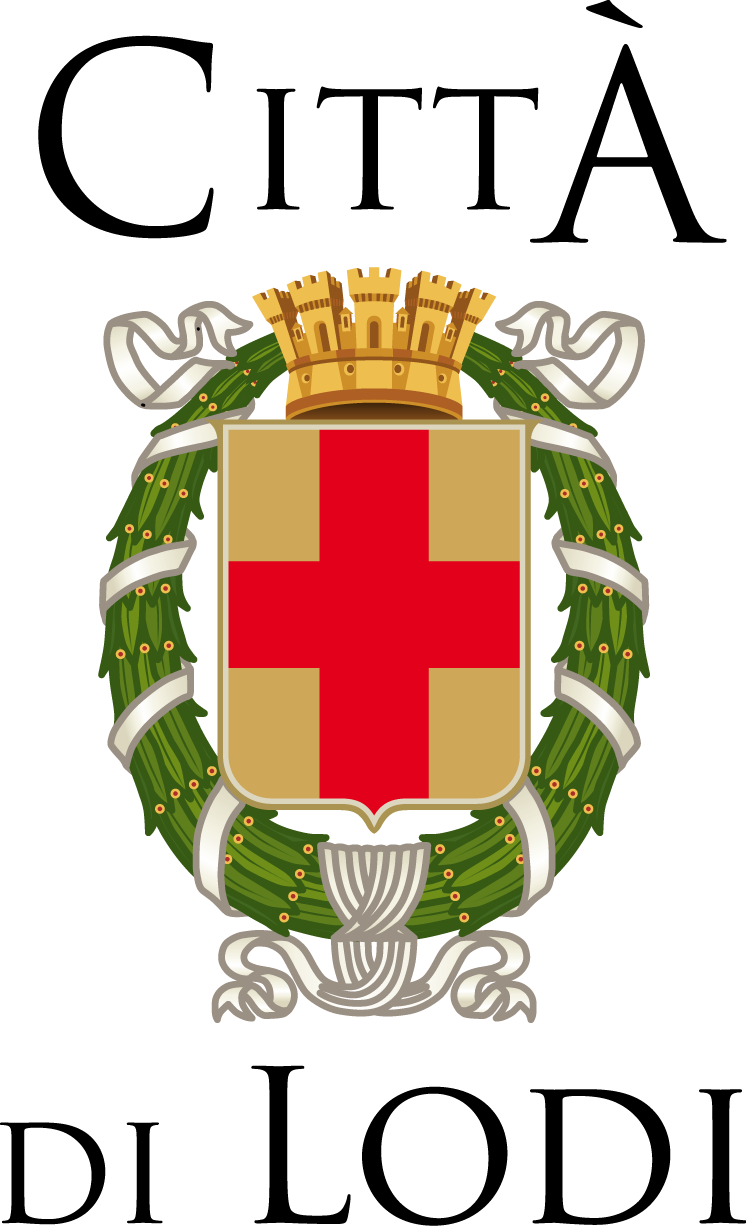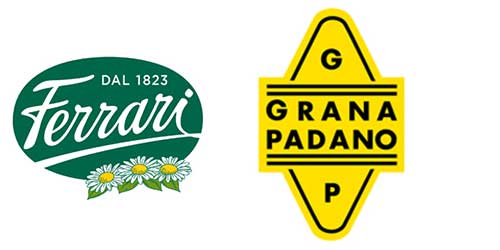Momentum (Adda)is an unpublished exhibition project by the artist Fabio Roncato, curated by Gaspare Luigi Marcone. Taking inspiration from the study and observation of the local territory, the artist will create a site-specific sculptural installation specifically designed for Lodi and the Platea spaces.
Fabio Roncato's work reveals a profound fascination with the energetic forces of nature, such as the water of rivers and seas, astronomical movements, and the dynamism of the Earth. In his practice, these forces translate into new landscapes or fragments of natural visions, using heterogeneous materials, methods, and processes.
The Momentum sculpture series represents almost the quintessence of Roncato's artistic research. The process leading to the creation of these sculptures seems deceptively simple but is, in fact, the result of research that has led the artist to define his experimental method. This method stems primarily from on-site studies of rivers and neighboring territories where he operates, searching for a suitable location to materialize his ideas. Once a suitable portion of the river aligns with his vision, Fabio Roncato melts fragments of natural wax and immerses them in the flowing water using specific containers. The thermal shock between hot and cold almost instantly solidifies the wax into an object that mimics the forms of water, its waves, and currents. This wax "matrix" (or soul) is then melted in aluminum—evoking the classic lost-wax technique—resulting in the final sculpture.
At Platea, Fabio Roncato presents an artwork that originates in the heart of the territory, following several inspections along the banks of the Adda River, which crosses Lodi and has, in some cases, been referred to as "the Lombard river par excellence." The creation process began in July of the same year, with abundant river waters and a climate and landscape in harmony with the artist's work. Roncato chose to operate in the late afternoon, towards evening, to overcome high temperatures and the glaring sunlight. The nighttime work allowed the large wax fragment to dry and stabilize under more suitable conditions.
After several weeks of "rest," the now "stabilized" wax fragment was transported to the foundry, where the aluminum fusion procedures commenced.
The artist's work brings to light movements and situations that would be difficult to see with the naked eye. Roncato's creative action is also a performative act. His gestures capture fragments of time and space, stabilizing in time the "photograph" of an energy emanating from nature that is unlikely to present itself in the same way again. The final result for this project provided one of the largest sculptures ever created by the artist, along with a rich photographic documentation of the various stages of the artwork's creation.
Curator Gaspare Luigi Marcone explains: «Momentum is a cycle of unique pieces, the uniqueness of that single moment, or indeed, 'moment,' given by the conjunction between the energy of nature and the artistic act. Directly or indirectly, the artist confronts universal themes of the human being and, therefore, of philosophy, history, and anthropology. The scent of Heraclitus' thought opens up to the numerous metaphors and symbologies that have the river as the subject and primary setting; great civilizations arise on the riverbanks, and immersion in the river is a common ritual act in many cultures.
Over the centuries, the Adda River has shaped—and still shapes—the Lombard landscape, its culture, and its productive activities. Like all natural elements, given the precarious balance between man and nature that has become an emergency factor in contemporary society, the Adda is also remembered for catastrophic events such as the great flood of 2002, a flood that submerged the city of Lodi and remains in the memory of its citizens. Exactly twenty years after this event, Fabio Roncato's project represents an invitation to reflection.»
BIO
Fabio Roncato (Rimini, 1982) lives and works in Milan.
After obtaining a diploma in painting from the Brera Academy of Fine Arts in Milan, he furthered his education by attending various residencies in Italy and abroad, including: Atelier Bevilacqua La Masa (Venice), VIR-Via Farini in Residence (Milan), Fondazione Spinola Banna per l'Arte (Banna, Turin), Jan van Eyck Academie (Maastricht), and the Shanghai Prize at the East China Normal University (Shanghai).
In the works that are part of his recent research, Roncato develops a reflection on the boundaries of visual representation, investigating forms, elements, energies of nature, and contemporaneity. The idea is to bring artistic practice into the critical aspects related to the relationship between understanding reality and the limits imposed by sensory perception. The work spontaneously takes shape in an unpredictable manner each time. Imagination plays a decisive role in this practice and in these methods of discovery.
His works have been exhibited in solo and group shows in private galleries, independent spaces, and museum institutions in Italy and abroad, including: Fulgura et Fossilia, a solo exhibition curated by Ilaria Bignotti, Museo Civico di Scienze Naturali di Brescia, Brescia (2022); Pietre / Stones, curated by Giulia Bortoluzzi, The Open Box, Milan (2022); Italian Twist, curated by Elisa Carollo and Mattia Solari, Fondazione Imago Mundi, Gallerie delle Prigioni, Treviso (2021); Come pesci nell’acqua, curated by Giorgio Verzotti, Villa Nigra, Miasino (2021); Come trattenere l’energia che ci attraversa. Paesaggi, curated by Stefano Coletto, Fondazione Bevilacqua La Masa, Palazzetto Tito, Venice (2021); The Field of Unknown (two-person show with Julie van der Vaart), Ingrid Deuss Gallery, Antwerp (2020); Ti Bergamo, curated by Lorenzo Giusti and Valentina Gervasoni, GAMeC – Galleria d’Arte Moderna e Contemporanea di Bergamo, Bergamo (2020); A Collection for Beyond the Plastic, curated by Chiara Casarin and Giovanni Bonotto, MUSE – Museo delle Scienze di Trento, Palazzo delle Albere, Trento (2020); Il motore delle stelle, a solo exhibition curated by Giorgio Verzotti, The Open Box, Milan (2019); Ultramar, a solo exhibition curated by Davide Dal Sasso, MARS – Milan Artist Run Space, Milan (2019); Il pianeta dove evaporano le rocce, a solo exhibition curated by Chiara Casarin and Eleonora Castagna, Torre delle Grazie, Musei Civici di Bassano del Grappa, Bassano del Grappa (2018). In 2022, some of his works were selected for the E.ART.H. Eataly Art House projects in Verona and Procida, the Italian Capital of Culture.


| Cookie | Duration | Description |
|---|---|---|
| cookielawinfo-checkbox-analytics | 11 months | This cookie is set by GDPR Cookie Consent plugin. The cookie is used to store the user consent for the cookies in the category "Analytics". |
| cookielawinfo-checkbox-functional | 11 months | The cookie is set by GDPR cookie consent to record the user consent for the cookies in the category "Functional". |
| cookielawinfo-checkbox-necessary | 11 months | This cookie is set by GDPR Cookie Consent plugin. The cookies is used to store the user consent for the cookies in the category "Necessary". |
| cookielawinfo-checkbox-others | 11 months | This cookie is set by GDPR Cookie Consent plugin. The cookie is used to store the user consent for the cookies in the category "Other. |
| cookielawinfo-checkbox-performance | 11 months | This cookie is set by GDPR Cookie Consent plugin. The cookie is used to store the user consent for the cookies in the category "Performance". |
| viewed_cookie_policy | 11 months | The cookie is set by the GDPR Cookie Consent plugin and is used to store whether or not user has consented to the use of cookies. It does not store any personal data. |
map
Platea Palazzo Galeano:
Corso Umberto 46, Lodi, 26900
Platea Project:
Via Maddalena 3, Lodi, 26900 (open by appointment only)
email: info@platea.gallery
whatsapp: +39 351 149 8258